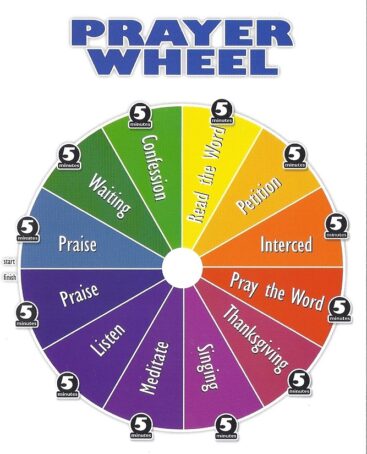The church I just left taught that everyone needed to pray a specified amount of time each day. I never did follow this teaching since that wasn’t how I was taught by my first pastor. Religious activity just shouldn’t be so forced. And any time I’ve ever been with friends, I didn’t say, OK, I have one hour. We need to spend one hour together. OK, starting… now! And watch the clock for the next hour to make sure I got my time with them in. Absolutely not. So why should I do that to God?
Lately my internal timer has been going off every once in a while… “Mary, you haven’t prayed yet. Mary, pray more! Are you still a Christian? Do you have the Holy Ghost?” Blah. And the annoying thing is that I know it isn’t God doing that- He knows that all He has to do is gently say “hi”- not throw a guilt trip on me- to spend some time with me!
I never did understand that: I was taught that guilt tripping was God. That makes absolutely no sense. If a kid wants to go to the park, you don’t need to say, “Go to the park! If you don’t go to the park, I’ll be angry! I’ll spank you!” Good grief, no! All you have to do is say, “Wanna go?” and you won’t be able to keep up with them, they’ll be moving so fast! So if God has good things for us in prayer or Bible study or going to church or whatever, and we once enjoyed those things and wanted to do them, were eager to do them, why would He start guilt tripping us with those? The answer is He won’t, of course. God knows us well enough to know- He will lead us gently, speak softly, and love us deeply. Sometimes I think maybe He leads so gently that we don’t quite realize we’re being lead, but we are.
OK, now to rambling… I know many people in church that would disagree with the following, and it blows my mind. I’ve seen these people work with their pets, but they don’t think people can be handled with similar compassion. However, when an animal is partly wild or is hurt, a person can approach the animal if he knows enough about it. The animal must be approached a certain way. Most shouldn’t be approached directly. Walk in at an angle, eyes averted, shoulder more toward the animal, and it will feel less threatened. Don’t walk steadily. Walk to a certain distance and stop.
Especially with a small animal, sit on the ground there, and assess the animal’s reaction. Maybe walk backward a little rather than directly to it after this pause. Let it know you aren’t going to hurt it. Reflect its body language if non-threatening- blink slowly if it’s a cat, nod if it’s a horse. No sudden moves, just walk slowly and gently, patiently. Speak softly, in a low, gentle voice. Think calm.
It can take hours or weeks, but the time spent is essential, and if we do it right, eventually that animal will learn to trust. Sometimes I think God does the same thing with us. Not pushing, not forcing, not requiring certain actions from us at specific times, just being calm and letting us adjust to Him.












